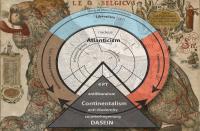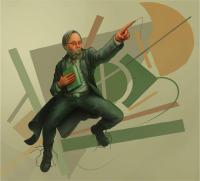The Radical Subject: Alexander Dugin on the Origins of His Philosophy
The New Metaphysics, which describes the ontological situation of extreme despair and the completely God-forsaken world, took shape in my consciousness in the early 1980s under the impression of my grasp of Traditionalist thought (Guénon, Evola, Schuon, etc.) and under the conditions of late Sovietism. Being attracted to the Hermetic tradition, I went to a chemical shop and asked for sulfur, mercury, and salt, to which the clerk replied with scant courtesy that they did not have any of the above, and that everything could only be distributed on approved ration coupons anyway. I didn’t have any coupons, nor any permission. Thus, for the first time, I laid out the approaches to the “New Metaphysics” in an unpublished article written in 1985, Sverkhchelovek (“Übermensch”). The essential point of this article boiled down to reflecting on the Nietzschean definition of the Übermensch, as described in detail by Evola in his Ride the Tiger. “The Victor over God and Nothingness” – I interpreted this formula as the essence of a special metaphysical program. “God is dead,” exclaimed the madman in Nietzsche’s work, “and we have killed him, you and I!” Man defeated God, and God retreated. This is desacralization. The sacred left. What is left? Nothing. After all, the sacred was the essence of everything, the center of being. After the death of God (victory over God), nothingness or “modern nihilism” (Nietzsche) was discovered.




















